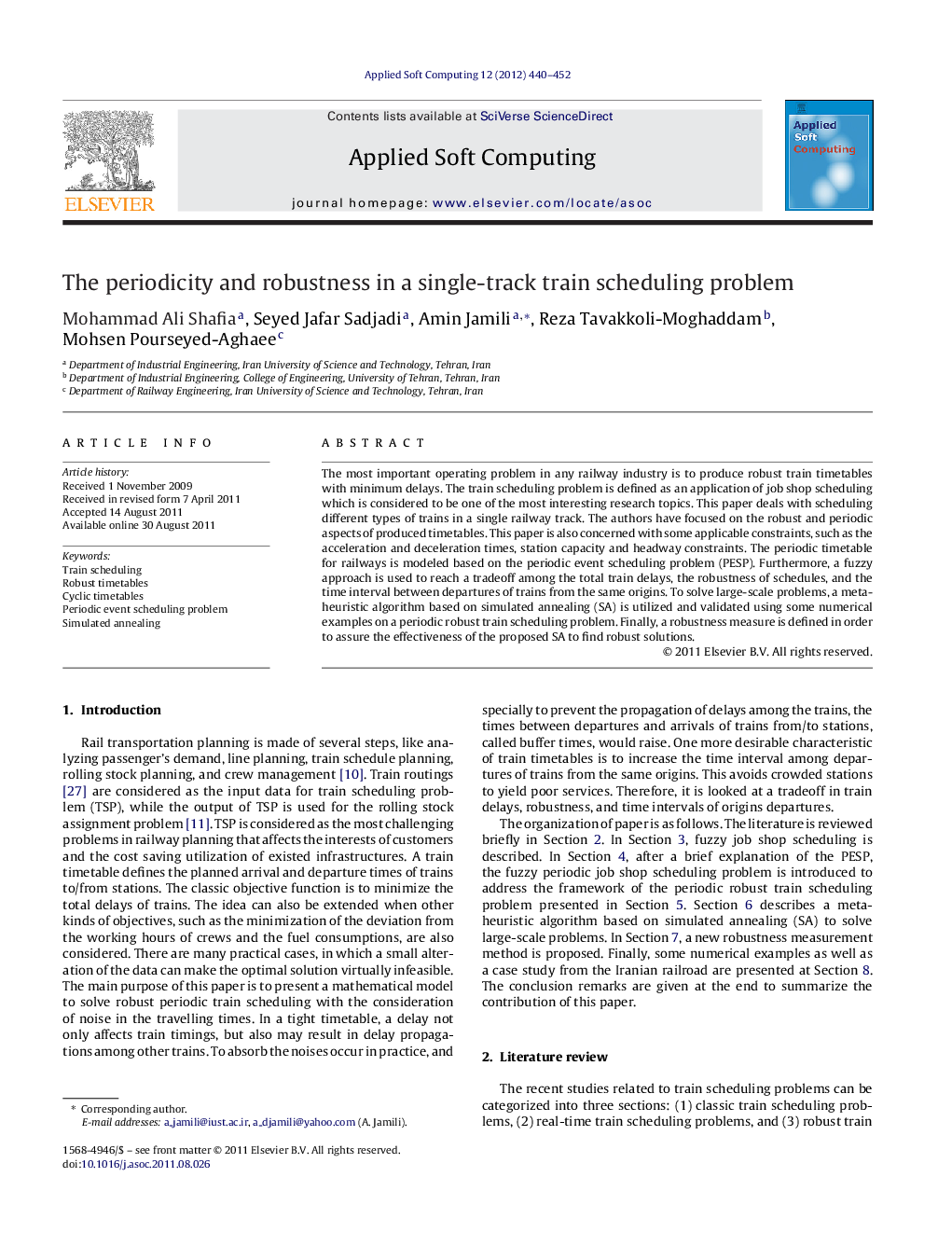| Article ID | Journal | Published Year | Pages | File Type |
|---|---|---|---|---|
| 496191 | Applied Soft Computing | 2012 | 13 Pages |
The most important operating problem in any railway industry is to produce robust train timetables with minimum delays. The train scheduling problem is defined as an application of job shop scheduling which is considered to be one of the most interesting research topics. This paper deals with scheduling different types of trains in a single railway track. The authors have focused on the robust and periodic aspects of produced timetables. This paper is also concerned with some applicable constraints, such as the acceleration and deceleration times, station capacity and headway constraints. The periodic timetable for railways is modeled based on the periodic event scheduling problem (PESP). Furthermore, a fuzzy approach is used to reach a tradeoff among the total train delays, the robustness of schedules, and the time interval between departures of trains from the same origins. To solve large-scale problems, a meta-heuristic algorithm based on simulated annealing (SA) is utilized and validated using some numerical examples on a periodic robust train scheduling problem. Finally, a robustness measure is defined in order to assure the effectiveness of the proposed SA to find robust solutions.
